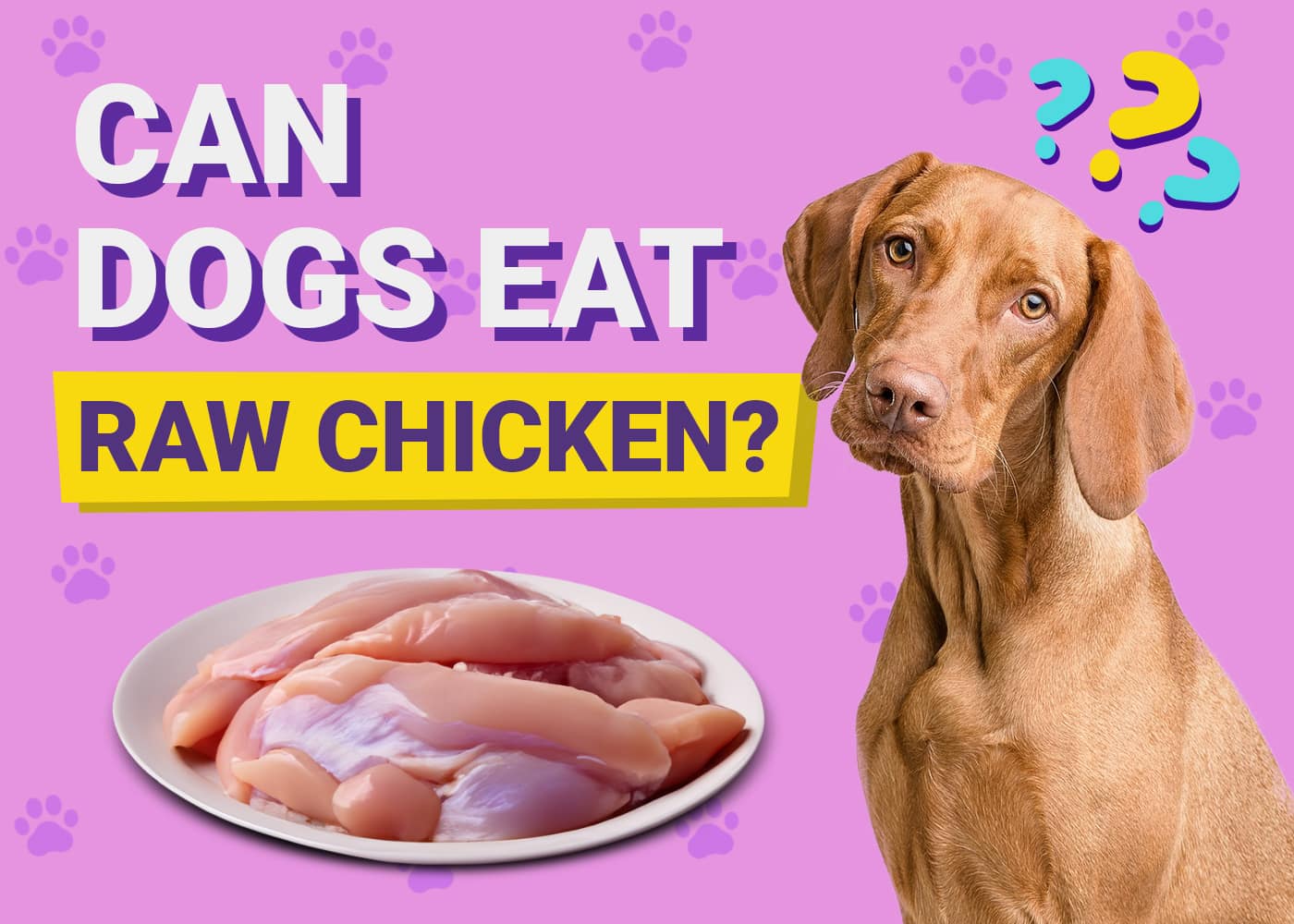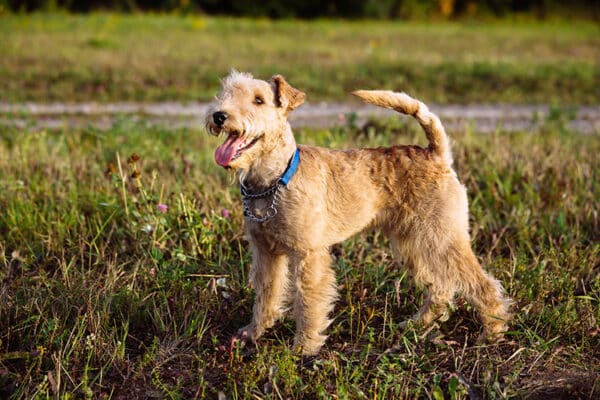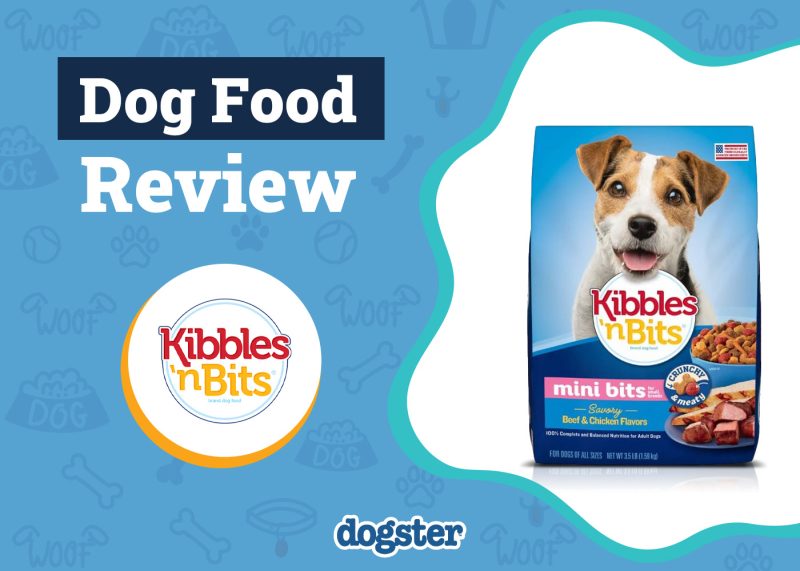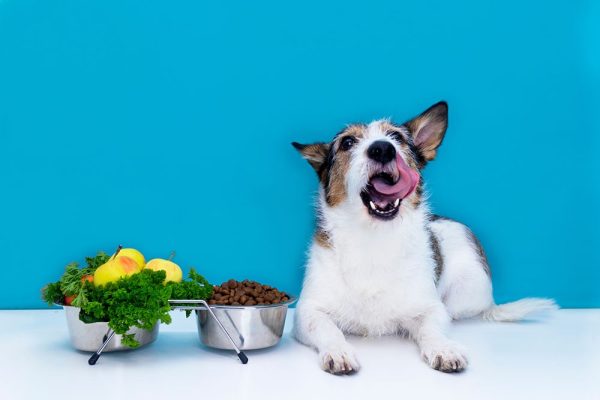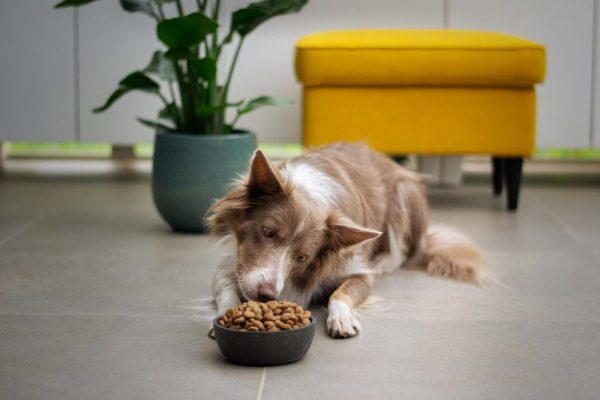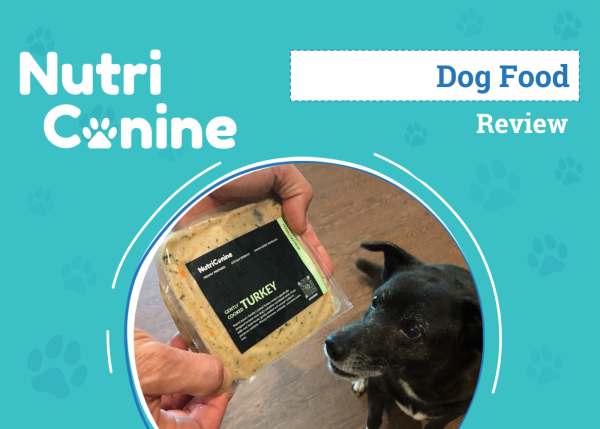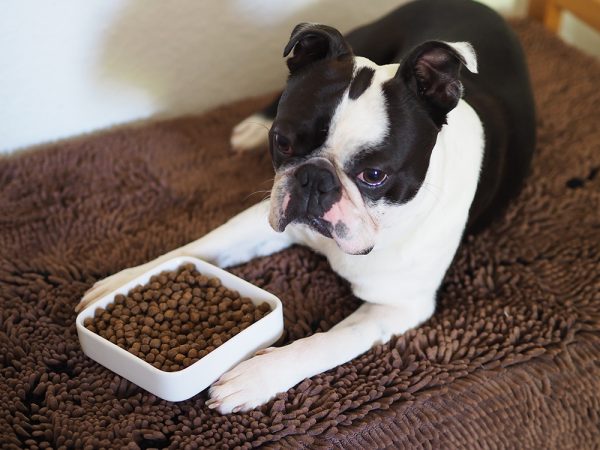In this article
Chicken is a common and healthy ingredient in many dog foods, and plenty of pet parents love to feed their dogs plain-cooked chicken. If you’ve been considering feeding plain chicken to your dog, you may have wondered whether you can skip the extra preparation and just give them raw chicken.
After all, isn’t raw meat more like what your dog would’ve eaten in the wild? Even if it makes sense in your mind, don’t jump too quickly to feed your dog raw chicken. Raw chicken is unsafe for your dog. To further understand why that is, keep reading below.

Why Is Raw Chicken Bad for Your Dog?
There is a growing movement toward feeding pets raw food; however, many veterinarians recommend avoiding the raw food trend and focusing on safely cooked, healthy meals for your dog. Chicken is no exception. Feeding raw chicken to your dog may put him at a greater risk of developing Salmonella, E. coli, or another bacterial infection, so make sure you cook the chicken before offering it to your pet.
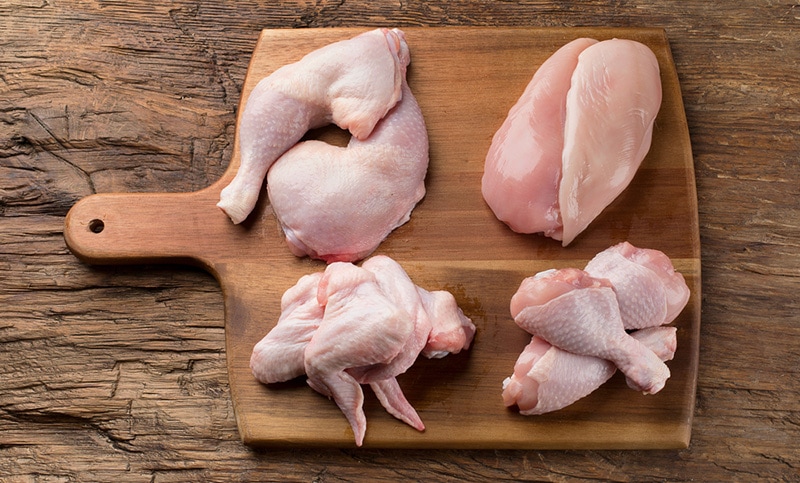
Signs of Salmonella in Dogs
Although signs of Salmonella are most often noticed in relation to the gastrointestinal system, they can cause issues throughout your dog’s entire body. Therefore, it is important to recognize the signs of Salmonellosis so you can get your dog treated as soon as possible.
Common signs of Salmonellosis include:
- Diarrhea, often severe in nature, sometimes bloody
- Vomiting
- Lethargy or fatigue
- Lack of appetite, sometimes with weight loss
- Fever
- Dehydration
In rare instances, it can also travel to the reproductive system and cause a female to lose her pregnancy. If you are unsure about the symptoms, we recommend reaching out to a veterinarian for advice.
If you need to speak with a vet but can't get to one, head over to PangoVet. It's our online service where you can talk to a vet online and get the advice you need for your pet — all at an affordable price!
Signs of E. Coli Infection in Dogs
An E. coli infection, or colibacillosis, will often have a sudden onset. Signs include:
- Lack of appetite
- Vomiting
- Watery diarrhea
- Lethargy and weakness
- Depression
- Dehydration
How to Prepare Chicken for Your Dog
While raw chicken should be avoided, cooked chicken is a great meal for your dog. It is a nutritious source of protein and tastes great for your pup. When preparing chicken for your dog to eat, there are a few cautionary measures to observe.
First, the way you cook the chicken will determine whether or not it is safe for your dog to eat. Plain, boiled chicken is a good choice for canines, and plain chicken broth is also acceptable. As long as neither the chicken nor the broth has any included seasonings or flavors, they are perfectly acceptable to feed to your dog. The chicken should reach an internal temperature of 165° F to kill harmful bacteria.
Seasoned chicken or fried chicken is not an appropriate meal for your dog; they can be incredibly unhealthy, sometimes even toxic.
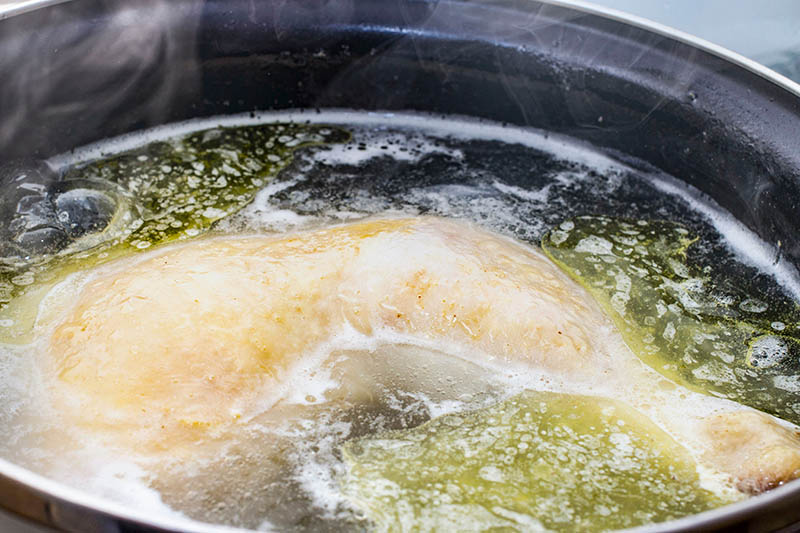
How Much Chicken Can You Feed Your Dog?
How you prepare chicken can determine whether or not it is healthy for your dog. Moderation is key, even with healthy food like plain, boiled chicken. Generally, ¼–⅓ cups of meat per 20 pounds of body weight is a good way to measure how much chicken you can give your dog.
The table below shows an estimate of how much chicken is appropriate for your dog based on their breed size.
| Breed Size | Amount of Chicken |
| Extra Small | 1 tablespoon |
| Small | 2 tablespoons |
| Medium | ¼ cup |
| Large | ⅓ cup |
| Extra Large | ½ cup |
Be Wary of Chicken Allergies
If you are feeding your dog chicken for the first time, monitor your pet for signs of chicken allergies. Animal protein sources (including chicken) are among the most prevalent causes of canine allergies.
Signs that your dog may have a chicken allergy include:
- Redness of the skin
- Rashes or hives
- Itchiness or irritation of the skin
- Loss of hair
- Recurring skin or ear infections
- Frequent hot spots
- Constant licking or chewing of the skin
- Vomiting
- Diarrhea
Even if your dog has no chicken allergy, be aware that allergies can emerge at any time. While your dog can gobble up as much chicken as it likes right now, there is always a possibility that it may develop an allergy in the future. Therefore, knowing the signs will help you notice if your dog’s food isn’t right for them.
Can You Give Chicken Bones to Your Dog?
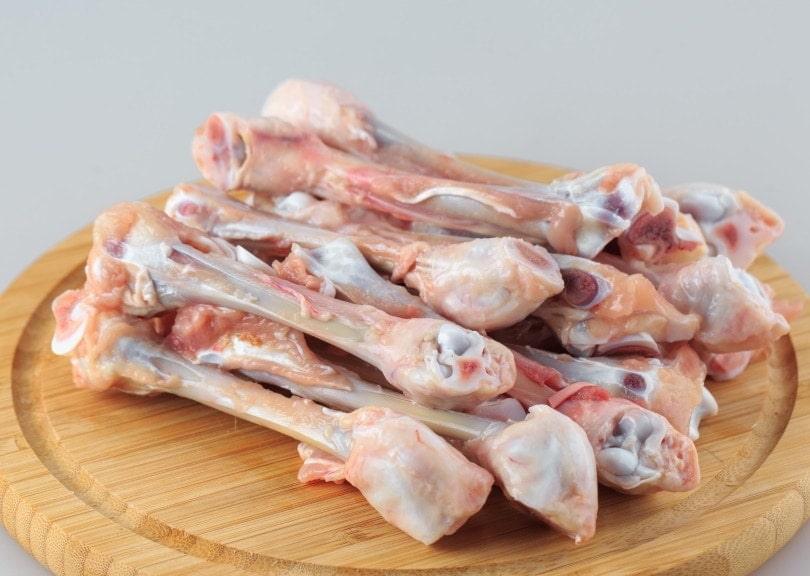
Most of us know the stereotype that dogs love to chew on bones. However, giving your dog a chicken bone to chew on is not advised since it’s a choking hazard. Also, chicken bones can splinter easily, which means that sharp pieces of the bone will travel through your dog’s digestive system. This can lead to blockages and even punctures in your dog’s gastrointestinal tract.
If your dog manages to swallow a chicken bone (or any bone for that matter), reach out to your vet immediately. You should also watch for the following signs:
- Lack of appetite
- Diarrhea
- Vomiting
- Drooling
- Gagging
- Coughing
- Lethargy
- Difficulty breathing
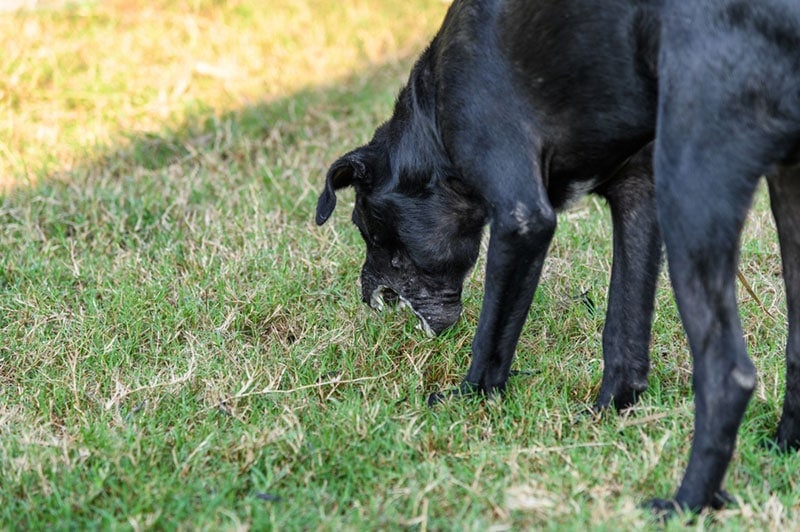

Frequently Asked Questions
Can Dogs Eat Chicken Nuggets?
No. While your dog likely will not get sick if it snatches a single chicken nugget from your plate, making a habit out of it isn’t a good idea. Chicken nuggets are not a healthy treat for your dog.

Can Dogs Eat Chicken Feet?
No. Whether raw or uncooked, chicken feet can cause digestive issues in canines. The bones in the foot can splinter, causing serious health issues for your pup.
What Health Benefits Does Chicken Provide to Your Dog?
In addition to being a healthy source of protein, chicken also provides nutrients, including zinc, vitamin B3, and vitamin B6.

Final Thoughts
Raw chicken is not a safe meal for your dog; however, cooked chicken is nutritious and tasty. If you plan to feed your dog chicken, make sure it is plain and boiled. Avoid seasonings, breading, and bones, which can cause serious health concerns in your dog.
When feeding your dog something new, don’t hesitate to reach out to your vet for guidance and advice.
See also:
- Can Dogs Eat Rotisserie Chicken? Vet-Approved Benefits, Risks, & FAQ
- What Is Chicken By-Product in Dog Food? Facts & FAQ
Featured Image Credit: manfredrichter, Pixabay
